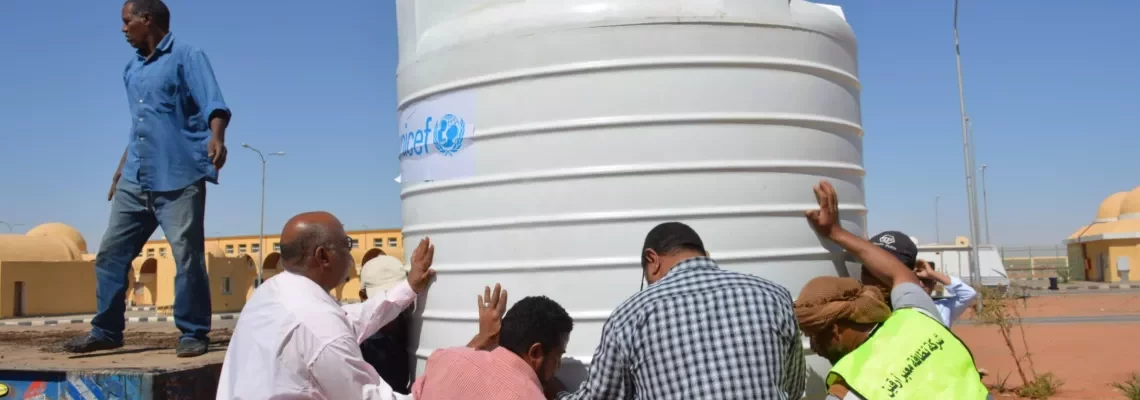Pooled funds provide people on the move with clean water and sanitation
Sudan | 2024 | CERF and CBPF
Sudan, El Fasher, Port Sudan and elsewhere. In El Fasher, Omnya, aged 12, attended an activity session for kids to learn about safe water and sanitation. She learned valuable information, but the trauma of the war was never far from her mind.
She and her family are taking shelter in a school here, alongside 700 other people. “I want the fighting to stop, I want to play,” she said.
Since war broke out in April 2023, 8.1 million people have been displaced inside and outside Sudan, and nearly 25 million people – more than half of them children- need humanitarian assistance.
As people shelter in schools and transit stations, drinking water and sanitation facilities become overwhelmed, posing a health risk for children and their families. Suspected cholera cases continue to rise, surpassing 10,000 in February 2024.
OCHA’s pooled funds are helping humanitarians to respond.
With the help of CERF and other donors, UNICEF has provided thousands of displaced people in El Fasher with access to safe drinking water and sanitation services, including families like Omnya’s.
Emergency water and hygiene services at stations and border crossings
At the Suk Shabi bus station in Kassala, displaced people from all over Sudan gather as they try to move on. Many must wait at the bus station for days or weeks as they plan their next moves. Hygiene rapidly deteriorates and there’s an urgent need for better sanitation and clean water.
Here, with funding from the Sudan Humanitarian Fund, LM International constructed a new block of latrines to serve the waiting travellers.
Over 450,000 people have fled – or are trying to flee – to Egypt, overwhelming the basic services provided at border crossings. Rural bus stations were just not ready to host hundreds of fleeing families.
With funding from CERF, UNICEF partnered with Aswan Water Company to provide clean water, sanitation, and hygiene support, by deploying water trucks to the Argeen and Qustul border crossings as well as the Karkar international bus station.
At the same time, UNICEF provided proper waste disposal from the septic tanks, distributed essential supplies like soap and sanitizer, and built new toilet facilities at critical transport hubs to reduce the risk of disease and preserve people’s dignity despite the extremely difficult circumstances.
Adapted from stories from UNICEF, UNICEF Egypt and Concern
For more information on the CERF allocation, and allocation data on the CERF Data Hub.
Please visit the Sudan Humanitarian Fund and find real-time contribution and allocation data on the POOLED FUNDS DATA HUB.
